Learn How to Optimize Low-Level Measurements using Lake Shore Cryogenic Probe Stations and Quantum Design PPMS®
Category
Published on
Abstract
A wide range of topics are covered, including:
- Basic principles of lock-in amplifiers and filters
- Appropriate wiring and source-measureinstrumentation for your samples
- Hall and Quantum Hall effect measurements
- Wafer-level DC, AC, and RF measurements
The workshop includes a mix of lectures and demonstrations. Participants will have the opportunity to learn from experienced researchers and to gain understanding of the best practices in the field.
Bio
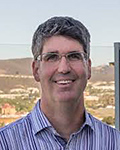
Neil Dilley is a Research Manager at Purdue's Birck Nanotechnology Center where he leads a group of research scientists who specialize in advanced techniques -- surface science, near field optics, electrical/thermal transport and magnetic characterization.
Dilley is a physicist specializing in cryogenic measurements and design. His doctorate work at UC San Diego (Ph.D. 1999) focused on sythesis and characterization of rare earth intermetallic compounds which exhibit superconductivity and magnetism. Neil’s current research interests are in magnetic materials discovery, spintronics, and nanomagnetism. He joined Birck after working for 16 years at Quantum Design, Inc. in both R&D and applications where he instructed and collaborated with materials researchers around the world.
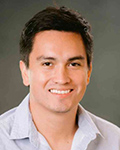 Emilio Codecido is an Application Scientist at Lake Shore Cryotronics. Dr. Codecido helps customers achieve the best electrical measurements for different state‑of-the-art applications, including those involving extremely sensitive devices and miniscule signals, where setup optimization is key.
Emilio Codecido is an Application Scientist at Lake Shore Cryotronics. Dr. Codecido helps customers achieve the best electrical measurements for different state‑of-the-art applications, including those involving extremely sensitive devices and miniscule signals, where setup optimization is key.
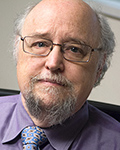 Dr. Jeffrey Lindemuth is an Applications Scientist IV with Lake Shore. He received his BSc in Physics from Penn State University and his PhD in High Energy Physics from the College of William and Mary in 1982, where his research concentrated on the study of weak and strong interactions through the measurements of exotic atom x-rays. Before Lake Shore, Dr. Lindemuth was with EG&G Princeton Applied Research, concentrating on computer-aided measurements and data analysis for electrochemistry, optical spectroscopy, fiber optics, magnetic materials, and high-speed electronics. He later became Director of R&D for the company. Since joining Lake Shore in 1993, his focus has been in the development of magnetic measurement systems, including VSMs and AC susceptibility measurements as well as Hall systems and data analysis. In addition, Dr. Lindemuth performs application training, working closely with customers to help them better understand the measurements obtained from their VSM and Hall systems. He is widely recognized as an expert in instrumentation and methods for Hall measurements, particularly in semiconductor materials. For more about Dr. Lindemuth’s work, read this Q&A from our blog.
Dr. Jeffrey Lindemuth is an Applications Scientist IV with Lake Shore. He received his BSc in Physics from Penn State University and his PhD in High Energy Physics from the College of William and Mary in 1982, where his research concentrated on the study of weak and strong interactions through the measurements of exotic atom x-rays. Before Lake Shore, Dr. Lindemuth was with EG&G Princeton Applied Research, concentrating on computer-aided measurements and data analysis for electrochemistry, optical spectroscopy, fiber optics, magnetic materials, and high-speed electronics. He later became Director of R&D for the company. Since joining Lake Shore in 1993, his focus has been in the development of magnetic measurement systems, including VSMs and AC susceptibility measurements as well as Hall systems and data analysis. In addition, Dr. Lindemuth performs application training, working closely with customers to help them better understand the measurements obtained from their VSM and Hall systems. He is widely recognized as an expert in instrumentation and methods for Hall measurements, particularly in semiconductor materials. For more about Dr. Lindemuth’s work, read this Q&A from our blog.
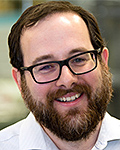 Dr. David Daughton is a Lake Shore Application Scientist focused on characterizing electronic materials and devices. He received his BS and MS in Physics from the University of Delaware and his PhD in Physics from The Ohio State University in 2010. Much of his work at OSU involved studying scanning tunneling microscopy and optical characterization of organic thin films at cryogenic temperatures. He was a consultant to Lake Shore before joining us in 2011. While here, Dr. Daughton has been the company’s principal investigator working with a team of hardware and software developers on the introduction of our continuous wave THz (CW-THz) based system for materials characterization. Results and observations from his THz-related work have been presented by at various conferences, including the IRMMW-THz conference and the APS March Meeting. In his presentations, Dr. Daughton has addressed how temperature-dependent THz spectroscopies have proven useful in characterizing the electronic properties of this novel materials. Dr. Daughton also works extensively with Lake Shore’s line of cryogenic probe stations, helping customers to configure existing Lake Shore products for a specific application, as well as providing application support for variable temperature measurements.
Dr. David Daughton is a Lake Shore Application Scientist focused on characterizing electronic materials and devices. He received his BS and MS in Physics from the University of Delaware and his PhD in Physics from The Ohio State University in 2010. Much of his work at OSU involved studying scanning tunneling microscopy and optical characterization of organic thin films at cryogenic temperatures. He was a consultant to Lake Shore before joining us in 2011. While here, Dr. Daughton has been the company’s principal investigator working with a team of hardware and software developers on the introduction of our continuous wave THz (CW-THz) based system for materials characterization. Results and observations from his THz-related work have been presented by at various conferences, including the IRMMW-THz conference and the APS March Meeting. In his presentations, Dr. Daughton has addressed how temperature-dependent THz spectroscopies have proven useful in characterizing the electronic properties of this novel materials. Dr. Daughton also works extensively with Lake Shore’s line of cryogenic probe stations, helping customers to configure existing Lake Shore products for a specific application, as well as providing application support for variable temperature measurements.
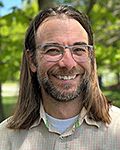 Jason Chonko is a 1998 graduate of Kent State University with a BSci in Physics and started his career as a Lab Technician at the university’s Liquid Crystal Institute. Prior to joining Lake Shore in January of 2023, he worked for several optical startups as a Staff Engineer, dealing with the challenges of research and design. Most of his 25-plus years in the industry have been spent as an Applications Engineer and marketer for several general-purpose test and measurement companies, with the goal of always helping customers get the most out of their instrumentation.
Jason Chonko is a 1998 graduate of Kent State University with a BSci in Physics and started his career as a Lab Technician at the university’s Liquid Crystal Institute. Prior to joining Lake Shore in January of 2023, he worked for several optical startups as a Staff Engineer, dealing with the challenges of research and design. Most of his 25-plus years in the industry have been spent as an Applications Engineer and marketer for several general-purpose test and measurement companies, with the goal of always helping customers get the most out of their instrumentation.
With Lake Shore, he specializes in electrical device characterization systems, including the M81-SSM synchronous source measure system, often performing technical analysis of customer applications to aid in product selection. As a member of our business development team, his job is to efficiently deliver solutions to customers’ test needs, with a focus on listening and asking the right questions to fully understand their needs and find the best solutions to their problems quickly. He also works to bring the “voice of the customer” to various departments, including Marketing, Engineering, and company management, so everyone can more fully understand our customer needs.
Sponsored by
Cite this work
Researchers should cite this work as follows:
Time
Location
1001, Birck Nanotechnology Center, Purdue University, West Lafayette, IN